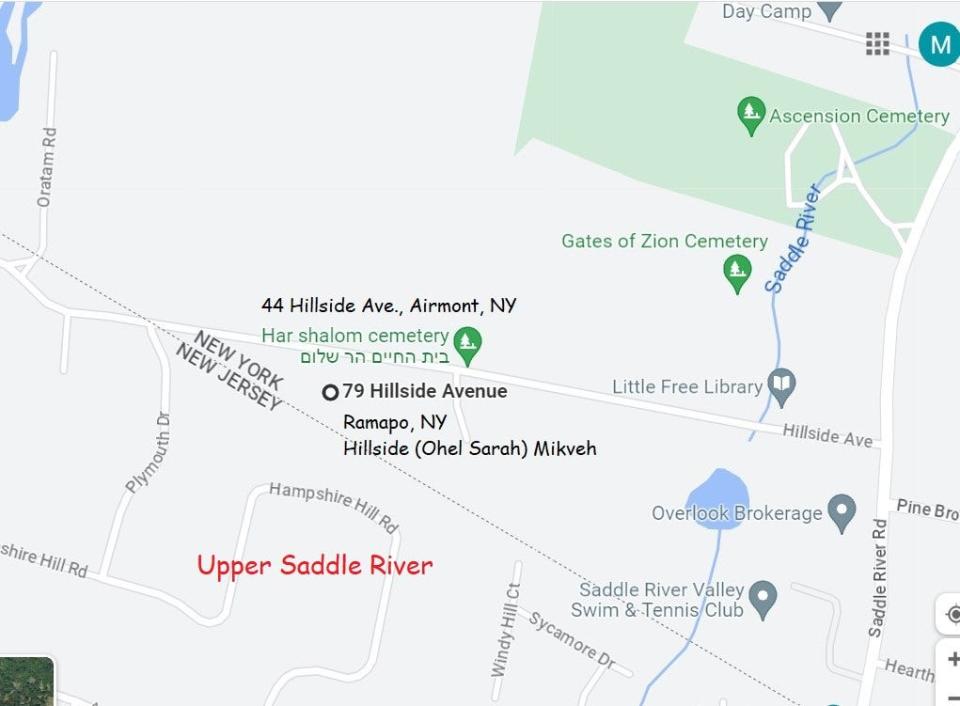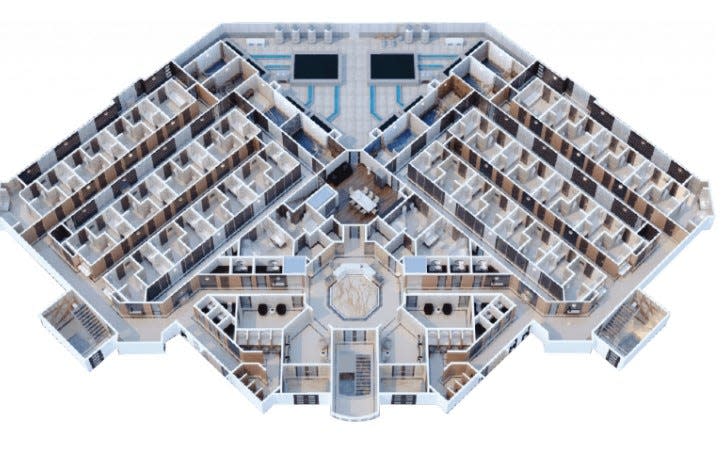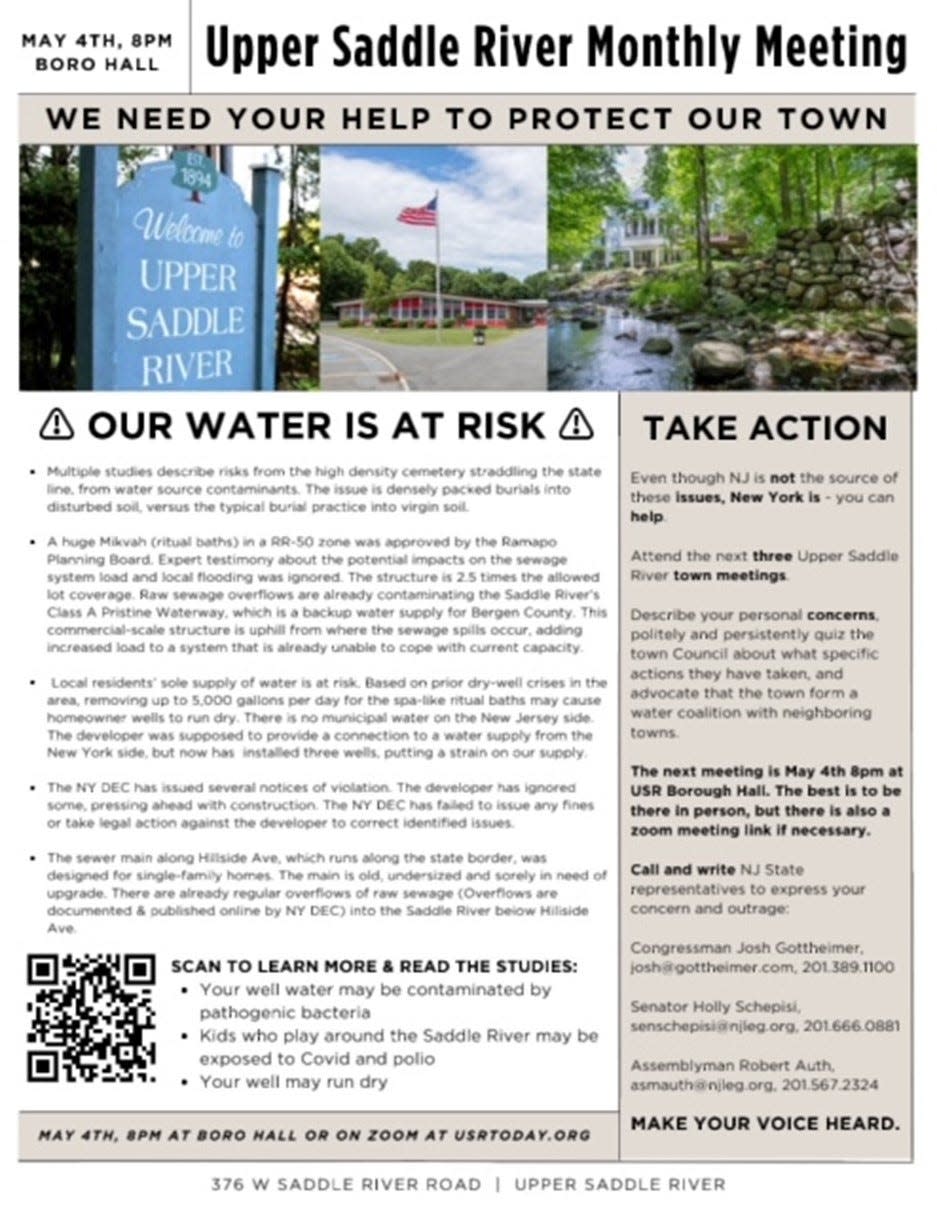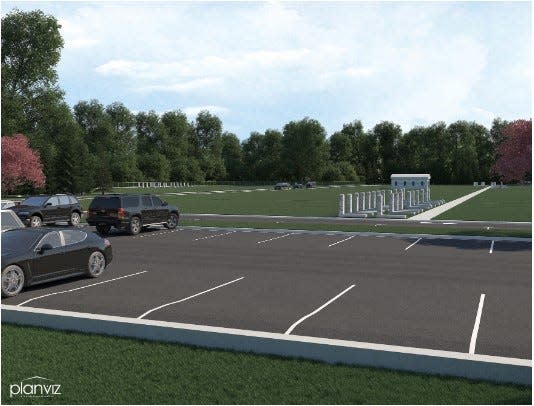Upper Saddle River residents protest Jewish development on NY border
UPPER SADDLE RIVER — A two-year dispute over building violations at several Jewish facilities under construction on the borough's northern border generated a public pledge Thursday from the mayor and council to pursue remedies.
The dispute primarily concerns the clearing of a 19-acre wooded site for an Orthodox Jewish cemetery recently opened at 44 Hillside Ave. in Airmont, New York, and the construction of an 18,520-square-foot mikveh, or ritual Jewish bath facility, on 3.7 acres across the street from the cemetery at 79 Hillside Ave. in Ramapo, N.Y.
Both have been cited by the New York Department of Environmental Conservation for failure to engage in runoff containment practices during construction.
Now, however, the concerns have widened to include a claim of insufficient on-site parking for the cemetery, forcing cars onto the shoulders of narrow Hillside Avenue, and funneling traffic onto Upper Saddle River side streets. Residents are also questioning how the owner has gained approval to install three wells on the site to service the mikveh when their application to connect with Veolia (formerly Suez) Water is pending. They are also seeking information on how the facility's discharged water will be handled.

The borough water supply is largely provided by well systems and residents claim that filling one swimming pool empties the aquifer serving the Hampshire Hill area. That has lead to questions about the impact of the mikveh.
Upper Saddle River Mayor Arman Fardanesh told 24 residents at the meeting that White Plains attorney Michael Burke has again been retained to address "water and sewer issues" for the borough, and that they are meeting with its water-impact committee and elected officials next week.
"Following that, we will have a meeting with both New Jersey and New York legislators to include members of this council, as well as Mike Waller from New York state, to discuss the ongoing issues that impact residents," Fardanesh said. "We'll also be engaging with the N.J. DEP and N.Y. DEC. We are working round the clock and taking this issue very seriously."
'Clean' cemeteries

The $14.5 million, 52-room Ohel Sarah or Hillside Mikveh is scheduled for completion in September 2024. The mikvehohelsarah.com website says the Orthodox community has "outgrown" its existing Mikveh of Rockland County on Viola Road in Monsey, N.Y., and that another is "desperately needed."
The Har Shalom Cemetery is being billed as the largest Shomer Shabbos-owned cemetery in the United States, described as containing anywhere from 10,200 to 20,000 plots. Traditionally, bodies are buried unembalmed in a shroud in a pine box with a hole in the bottom to facilitate "going back to earth."
Residents say their concerns are not fueled by bias, but rather concern for the environment and aquifer. However, they refer to two cemeteries east of the Har Shalom site as "clean" — even though one of them is the Jewish Gates of Zion Cemetery, which follows the same burial rules — because Har Shalom bodies are "buried without a proper enclosure."
Local: Saddle River affordable housing plan OK'd. Here's what judge said of residents' objections
Burial of unembalmed bodies is not prohibited in New York or New Jersey, and in fact is gaining in popularity as part of the "green burial" movement on the premise that embalmed bodies may be leaching more chemicals into the groundwater than naturally decaying bodies.
The Green Burial Council notes that "embalming does not remove toxins from anywhere in the body" and cremation has no environmental benefits.
"It's an old thing that's new again," said Jeff Vander Plaat of Vander Plaat Memorial Home in Paramus. "We don't have a whole lot of call for it, but we are able to perform them."

Among the cemeteries performing green burials is Maryrest Cemetery in Mahwah, one of 11 Catholic Cemeteries of the Archdiocese of Newark with New Jersey’s first Catholic Natural/Green Burial Section. Patrons can choose from "dark," "medium," or "light" green options, from burial in a shroud to burial with environmentally friendly embalming chemicals and a decomposing casket.
Residents argue that the Har Shalom cemetery land has been made additionally "porous" and susceptible to seepage by the wholesale removal of the site's foliage, fluffing up what they estimate to be 15 feet of top soil so remains can seep down to the aquifer more quickly.
But Mickey Levine, executive vice president of the Cemetery Association of the Jewish Federation of Northern New Jersey, said he's never had a complaint about seepage or water contamination in 20 years of overseeing its 18 burial sites in Bergen and Passaic counties.
"When you dig a grave you're loosening the soil, " Levine said. "We're doing burials all the time."

Old Paramus Reformed Church in Ridgewood oversees the adjacent 22-acre, 18,600-plot Valleau Cemetery just off Route 17 south. The Rev. Rob Miller says his church doesn't do "green burials" but that a vault is primarily required to stabilize the ground as soil settles after burial, not to prevent seepage.
In his 2022 book "Over My Dead Body: Unearthing the Hidden History of America's Cemeteries," author Greg Melville points out that the U.S. is one of the few countries in the world embalming its dead — a practice left over from the Civil War to preserve bodies for long-distance transport. Before that, dead people went into the ground "au naturel."
Melville says that while research on how cemeteries contaminate groundwater is "surprisingly scarce," there are indications that the contamination is more likely coming from bodies that are embalmed with a cancer-causing combination of formaldehyde, methanol and ethanol — an average of 3 gallons per body, or 4.5 million gallons for the U.S. in 2021 alone.
"There are many potential fixes for the creep of graveyard ooze into our aquifers," Melville said. "The easiest being to stop injecting the dead with chemicals."
This article originally appeared on NorthJersey.com: Upper Saddle River residents protest Jewish development in NY

